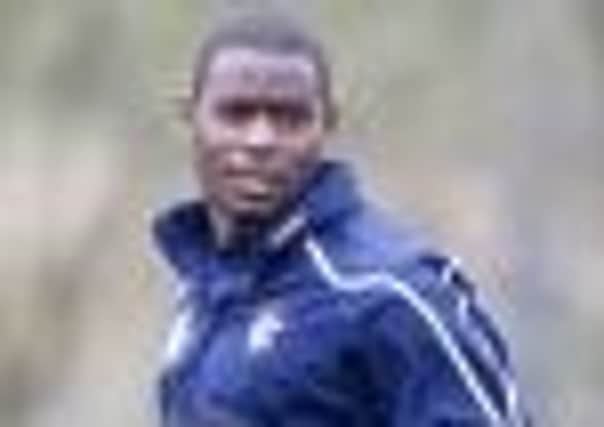Interview: Maurice Edu - ‘If you make a racist comment to someone anywhere, I don’t think it ends by you turning round and shaking their hand’


A CERTAIN discomfort was betrayed by Maurice Edu at Murray Park the other day when he was asked about the criminally crass comments on racism made by FIFA president Sepp Blatter this week. The Rangers midfielder’s misgivings about discussing the issue at length in public may be related to the fact that, in the Ibrox car park only two years ago, he was racially abused by a member of a home support who have never held him as a playing favourite.
Yet, even against such a backdrop, Edu still succeeded in providing a clear and concise condemnation of Blatter’s claim that there was no racism in football, and that any such on-field incidents could be settled with a handshake between players at full-time – indeed, the very sort of clear and concise condemnation that should have been forthcoming from the head of the football’s world governing body on a real blight on the game, but depressingly wasn’t – even in his subsequent mealy-mouthed mea culpa.
Advertisement
Hide AdAdvertisement
Hide Ad“Racism does exist in football,” said the 25-year-old, who grew up in California to Nigerian parents. “And I don’t agree with the whole thing that if a racist comment is made in the game it ends with a handshake. First of all, racism has no place in sport or this world. The fact that it does exist in sport says something about the sad time we are living in. To say that it ends with a handshake... I completely disagree with that.”
Edu would not discuss whether he had encountered racism on the pitch. Perhaps he was also mindful of being dragged into the controversy surrounding England captain John Terry, who could yet face criminal charges for allegedly calling Anton Ferdinand “a f****** black c***” while playing for Chelsea against Queens Park Rangers last month – an accusation Terry denies. But, when Edu suffered such abuse because of the colour of his skin in very close proximity to the field of play, he did not hold back. The morning after Rangers’ 4-1 home defeat by Unirea Urziceni on October 2009, the American posted on Twitter: “Not sure what hurt more: result last night or being racially abused by couple of our own fans as I’m getting in my car.”
It is doubtful that the fan then responsible, labelled “moronic” by Rangers, would only have had to press the flesh and apologise for Edu to think that here was a person with whom he could become best buddies. The midfielder, who moved to Scotland from Toronto FC in a £2.6 million deal almost three and a half years ago, knows that life doesn’t, and shouldn’t, work like that on a personal, professional or on-pitch basis.
“I don’t really want to go into it all about [what has happened on the pitch] but I just think that comment [from Blatter] wasn’t accurate. If you make a racist comment to someone anywhere, I don’t think it ends by you turning round and shaking their hand. Whether it’s a workplace or on the street, you can’t do it anywhere.”
Yet, plenty still do. Edu, patently holding back on all that he would like to say about racism, exhibited an intensity in difficult discussions of the subject. His eyes burned with an unmistakeable anger as he did so. Never more so than when it was suggested to him that the firestorm – in the UK at least – created by Blatter’s glib dismissal of the problem might be evidence that tolerance levels towards racism are diminishing. “People react based on emotions,” he said. “When a comment is made people take it for what it is at that moment in time.”
Edu rejected the opportunity to give we journalists a happy ending of sorts when asked whether the situation regarding racism in football might be improving. Perhaps it is naive and ignorant to believe that the midfielder might feel he has stepped back in time by coming to Europe from an American sporting arena that, in being dominated by black athletes, doesn’t seem to have the same problems that rear their head all too regularly on this continent. But he was certainly far from resounding on the matter of whether we are moving forward in treating all races with the same respect.
“You would hope the situation is improving but whether it is or not, I don’t know,” he said. “You are always optimistic.” But equally entitled to be guarded as to whether that optimism is justified.